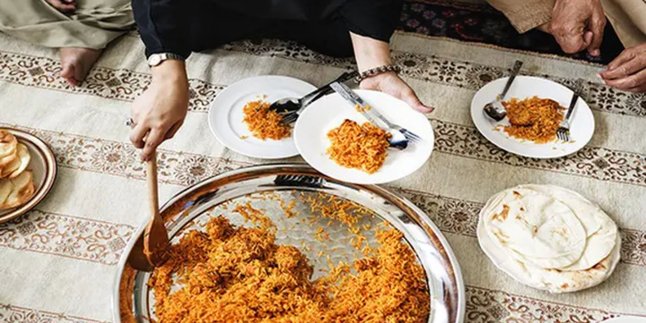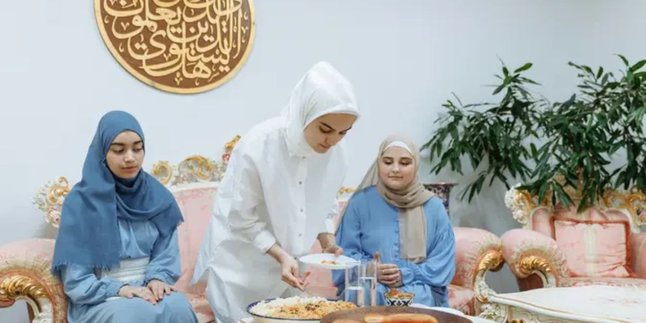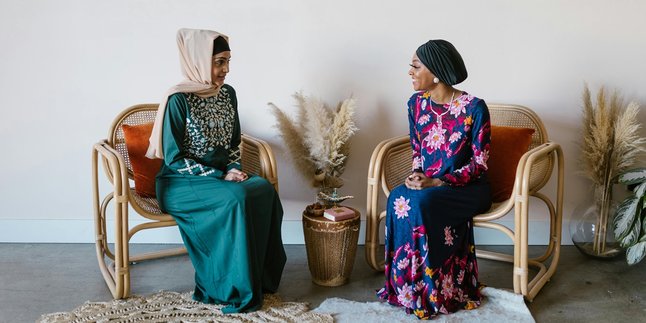In Indonesian culture, the tradition of visiting friends and family during Eid al-Fitr has become an inseparable part of the celebration of the Muslim victory day. As a country with a majority Muslim population, this moment is utilized by many to strengthen family ties, enhance brotherhood, and seek forgiveness after a month of fasting.
Every year, people carry out this tradition in various ways. One of the most common is visiting relatives, neighbors, and friends for direct greetings. Additionally, many also hold halal bihalal events, both within extended families, communities, and even in government institutions and companies.
In Islamic teachings, maintaining and strengthening ties of friendship holds significant value. The Prophet Muhammad SAW himself highly encourages his followers to always maintain good relations with others, and various hadiths mention that friendship can prolong life and bring blessings into one’s life. Therefore, the tradition of visiting during Eid al-Fitr is not merely a hereditary habit but also reflects deep spiritual and social values.
Curious about the true meaning? Here is complete information compiled from various sources, Wednesday (2/4/2025).
1. The Importance of Silaturahim
The importance of silaturahim has been emphasized by Allah SWT. Indeed, Allah threatens that He will not admit anyone who intentionally severs the ties of kinship. In a hadith narrated by Abu Jabir bin Muth'im, it is reported that the Prophet Muhammad SAW said:
ا يَدْخُلُ الْجَنَّةَ قَاطِعٌ
"No one who severs (the ties of kinship) will enter paradise." (HR Bukhari and Muslim).
This hadith indicates that severing the ties of kinship is something that is highly prohibited in religion, and the threat is that one will not enter paradise. Therefore, it is important for us to take advantage of the Eid holiday to reconnect with family members we have not seen for a long time.
Moreover, there are many arguments that encourage maintaining the ties of kinship and the benefits of silaturahim from the perspective of Islam, which is important for Muslims to know in order to keep silaturahim as part of piety to Allah SWT, as explained in the following hadith,
“Whoever believes in Allah and the Last Day should honor his guest, and whoever believes in Allah and the Last Day should maintain the ties of kinship.” (H.R. Bukhari & Muslim).
On the other hand, there is also in the Qur'an Surah Al-Baqarah Verse 83 regarding the encouragement to do good to relatives, as follows:
“Do not worship besides Allah, and do good to parents, relatives, orphans, and the poor. And speak kindly to people, establish prayer, and give zakat.” But then you turned away (denied) except for a few of you, and you (still) became disobedient.” (Q.S Al-Baqarah: 83)
2. The Meaning of Silaturahim during Eid
The tradition of silaturahmi (social visits) during Idul Fitri is not merely a generational habit, but it holds a profound meaning in the social and spiritual life of Muslims. There are several key values contained in this tradition, including:
1. A Moment to Renew Relationships
As time goes by, busyness and various differences of opinion often cause relationships with family, relatives, or friends to become strained. Idul Fitri provides a golden opportunity to mend relationships that may have long been distant. By visiting each other and exchanging news, the warmth in relationships that had diminished can be rekindled.
2. A Time for Mutual Forgiveness
Every human being has certainly made mistakes, whether intentionally or unintentionally. Therefore, the tradition of silaturahmi during the holiday becomes the right moment to open our hearts and forgive one another. Sincerely asking for and giving forgiveness lightens the heart, and social relationships can return to harmony. This mutual forgiveness reflects the teachings of Islam that emphasize the importance of maintaining peace and harmony in community life.
3. Strengthening Family and Brotherhood Bonds
Silaturahmi also serves as a means to strengthen the bonds among family members and the community. The gatherings that occur during Idul Fitri are not only an opportunity to share stories but also to reinforce a sense of togetherness and care for one another. In a warm atmosphere, every individual feels appreciated and recognized, thus the sense of unity within the family and community becomes even stronger.
4. Spiritual Reflection After a Month of Fasting
Idul Fitri is a moment of victory after a full month of fasting. The silaturahmi conducted after Ramadan is not just a social tradition but also a form of spiritual reflection. After going through a month filled with self-control and increased worship, visiting relatives becomes one way to continue the values of patience, sincerity, and sincerity that have been cultivated during Ramadan.
5. Spreading Happiness and Blessings to Others
Eid is synonymous with an atmosphere of happiness shared with the people around us. Whether through direct visits, sharing food, giving small gifts, or simply expressing heartfelt greetings, all of these are forms of care that can strengthen social relationships. This spirit of sharing is also in line with Islamic teachings that encourage its followers to help one another and spread goodness.
3. Guide to Conducting Silaturahim during Eid for Greater Meaning
Visiting relatives during Eid al-Fitr is not just an annual tradition, but also a precious moment to strengthen family and brotherhood bonds. To make this activity more meaningful, there are several things that can be done to ensure that the visits go smoothly and provide greater benefits. Here are some tips that can be applied:
1. Prepare Your Heart with Sincere Intentions
Before visiting relatives, it is important to straighten your intentions and prepare your heart. Consider visiting relatives as a form of worship that can bring you closer to Allah SWT and as a means to improve relationships with others. Set aside feelings of pride, ego, or grudges that may still exist, and open your heart to sincerely forgive one another.
2. Plan Your Visits Well
To make your visits more effective, create a list of people you want to meet, starting from immediate family, relatives, to close friends. Arrange your visit schedule wisely so that you are not rushed or miss important people. If possible, contact in advance to ensure the right visiting time so that the host can prepare to receive guests comfortably.
3. Pay Attention to Etiquette and Politeness
When visiting, show a polite attitude and respect for the host. Start with a greeting, wear appropriate clothing, and be friendly to everyone. Additionally, pay attention to the duration of your visit so it is not too long, so as not to trouble the host, especially if they are still receiving other guests.
4. Build Meaningful Interactions
Silaturahmi is not just about coming and going, but also about establishing quality communication. Use this opportunity to chat sincerely, ask about their news, listen to their stories, and share positive experiences. Avoid sensitive topics or those that may cause tension to keep the atmosphere comfortable and warm.
5. Involve Children in the Tradition of Visiting
For those with children, invite them to participate in visits so they understand the importance of maintaining family relationships. Explain to them values such as respecting elders, greeting, and behaving politely when visiting. By involving children from an early age, they will become accustomed to applying these positive values in their daily lives.
6. Show Affection with Simple Gifts
If possible, bring souvenirs or small gifts as a form of attention to the host. It doesn't have to be something expensive; just something meaningful like festive cookies, local specialties, or other useful items. This can serve as a symbol of affection and respect for those being visited.
(kpl/ses)
Disclaimer: This translation from Bahasa Indonesia to English has been generated by Artificial Intelligence.












